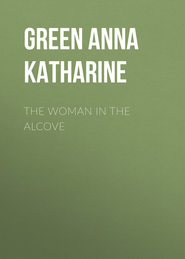По всем вопросам обращайтесь на: info@litportal.ru
(©) 2003-2024.
✖
The Leavenworth Case
Настройки чтения
Размер шрифта
Высота строк
Поля
“At what hour did you go to bed?”
“Well, I should say about eleven.”
“Did you hear any noise in the house either before or after that time, that you remember?”
“No, sir.”
“So that the discovery you made this morning was a surprise to you?”
“Yes, sir.”
Requested now to give a more detailed account of that discovery, he went on to say it was not till Mr. Leavenworth failed to come to his breakfast at the call of the bell that any suspicion arose in the house that all was not right. Even then they waited some little time before doing anything, but as minute after minute went by and he did not come, Miss Eleanore grew anxious, and finally left the room saying she would go and see what was the matter, but soon returned looking very much frightened, saying she had knocked at her uncle’s door, and had even called to him, but could get no answer. At which Mr. Harwell and himself had gone up and together tried both doors, and, finding them locked, burst open that of the library, when they came upon Mr. Leavenworth, as he had already said, sitting at the table, dead.
“And the ladies?”
“Oh, they followed us up and came into the room and Miss Eleanore fainted away.”
“And the other one,—Miss Mary, I believe they call her?”
“I don’t remember anything about her; I was so busy fetching water to restore Miss Eleanore, I didn’t notice.”
“Well, how long was it before Mr. Leavenworth was carried into the next room?”
“Almost immediate, as soon as Miss Eleanore recovered, and that was as soon as ever the water touched her lips.”
“Who proposed that the body should be carried from the spot?”
“She, sir. As soon as ever she stood up she went over to it and looked at it and shuddered, and then calling Mr. Harwell and me, bade us carry him in and lay him on the bed and go for the doctor, which we did.”
“Wait a moment; did she go with you when you went into the other room?”
“No, sir.”
“What did she do?”
“She stayed by the library table.”
“What doing?”
“I couldn’t see; her back was to me.”
“How long did she stay there?”
“She was gone when we came back.”
“Gone from the table?”
“Gone from the room.”
“Humph! when did you see her again?”
“In a minute. She came in at the library door as we went out.”
“Anything in her hand?”
“Not as I see.”
“Did you miss anything from the table?”
“I never thought to look, sir. The table was nothing to me. I was only thinking of going for the doctor, though I knew it was of no use.”
“Whom did you leave in the room when you went out?”
“The cook, sir, and Molly, sir, and Miss Eleanore.”
“Not Miss Mary?”
“No, sir.”
“Very well. Have the jury any questions to put to this man?”
A movement at once took place in that profound body.
“I should like to ask a few,” exclaimed a weazen-faced, excitable little man whom I had before noticed shifting in his seat in a restless manner strongly suggestive of an intense but hitherto repressed desire to interrupt the proceedings.
“Very well, sir,” returned Thomas.
But the juryman stopping to draw a deep breath, a large and decidedly pompous man who sat at his right hand seized the opportunity to inquire in a round, listen-to-me sort of voice:
“You say you have been in the family for two years. Was it what you might call a united family?”
“United?”
“Affectionate, you know,—on good terms with each other.” And the juryman lifted the very long and heavy watch-chain that hung across his vest as if that as well as himself had a right to a suitable and well-considered reply.
The butler, impressed perhaps by his manner, glanced uneasily around. “Yes, sir, so far as I know.”
“The young ladies were attached to their uncle?”
“O yes, sir.”
“And to each other?”
“Well, yes, I suppose so; it’s not for me to say.”
“You suppose so. Have you any reason to think otherwise?” And he doubled the watch-chain about his fingers as if he would double its attention as well as his own.
Thomas hesitated a moment. But just as his interlocutor was about to repeat his question, he drew himself up into a rather stiff and formal attitude and replied:












